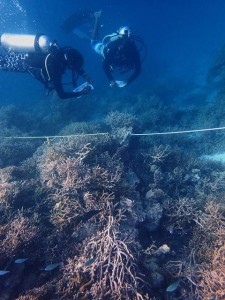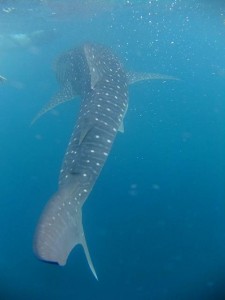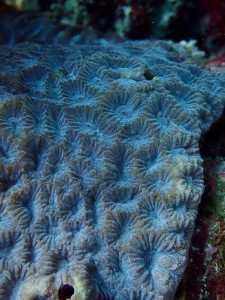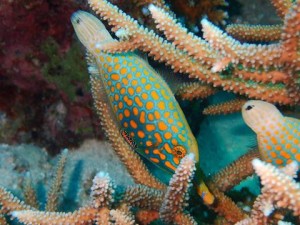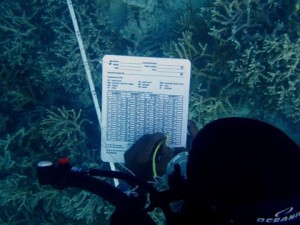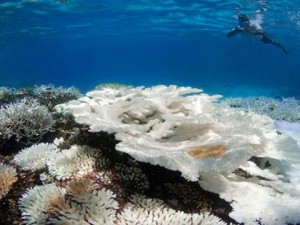News
Bleaching and teaching – saving corals and marine life in the face of El Niño
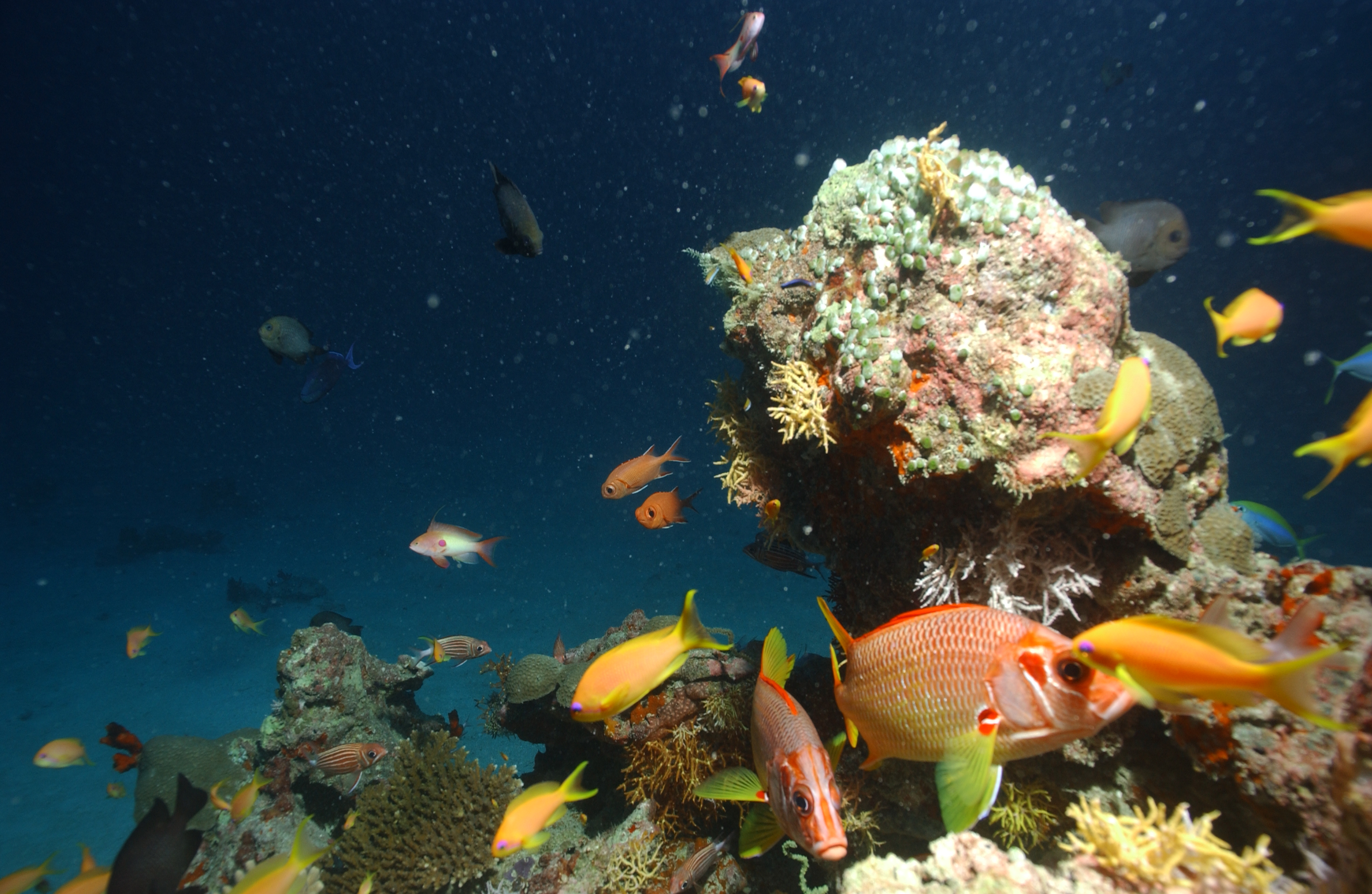

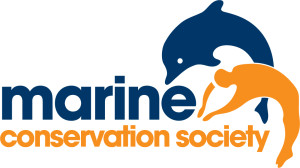 In the Maldives, repressive politics, coral bleaching and the whale shark tourism industry are out of control. Two NGOs – Biosphere Expeditions and the Marine Conservation Society (MCS) – battle on regardless. Their silver lining is civil society groups.
In the Maldives, repressive politics, coral bleaching and the whale shark tourism industry are out of control. Two NGOs – Biosphere Expeditions and the Marine Conservation Society (MCS) – battle on regardless. Their silver lining is civil society groups.
The two NGOs have worked in the Maldives since 1990, eventually joining forces in 2011. Today they run an annual research expedition to the Maldives, assessing coral reef fitness alongside marine health indicators such as whale sharks. “We are also very concerned by the increasingly repressive political developments,” says Dr. Matthias Hammer of Biosphere Expeditions.
El Niño devastating reefs
The recent El Niño event has severely stressed corals in the Maldives too. So much so that according to MCS’s Dr. Jean-Luc Solandt the July research trip will be “one of sadness – to see the impact of climate change. A massive bleaching event has hit the Maldives in May as a result of a strong and long El Niño. It has clearly killed many shallow water Maldives reefs. Our task is to see the extent of the damage caused and to work out which reefs are more resilient.”
Dr. Hammer adds that “Maldivian local communities are only slowly becoming more aware of human impacts on reefs and therefore the source of their livelihoods and homes. Given the very real threats to coral reefs and the rapid pace of change, communities, politicians and government must be more proactive in managing the coral reefs of the Maldives properly and sustainably.”
Photos (left to right): Surveying the reef (c) S Hashim; Whale shark (c) Biosphere Expeditions; Colours of the reef (c) S Hashim.
Unsustainable, out of control whale shark exploitation and harassment
The two NGOs also do not mince their words in their assessment of the whale shark tourism industry in South Ari Marine Protected Area. “Although the area is a Marine Protected Area (MPA), as of yet it is merely a paper park. Despite suggestions for regulations being put forward, there is neither a proper management plan that all the stakeholders agree on, nor a governing body actively involved in enforcing these regulations. As a result, boat collisions that result in major injuries to the sharks and harassment by boats and divers / snorkellers engaged in irresponsible tourism activities are the rule, rather than the exception. Whale shark tourism is therefore far from sustainable and the MPA has a long way to go until it is no longer just a paper park.”
The silver lining: Where the officialdom fails, communities step in
But it is not all doom and gloom. Where officialdom is failing, civil society and committed Maldivians are stepping in. Ever since Biosphere Expeditions started running its annual research trip to the Maldives in 2011, it has educated and trained Maldivians in reef survey techniques as part of the Biosphere Expeditions’ placement programme. This culminated in the first-ever all-Maldivian reef survey in November 2014 and other community-based conservation initiatives since then, the latest in March 2016. Shaha Hasihim of local NGO Gemana, for example, has taken part in several expeditions and is now training her compatriots in reef survey techniques and setting up community-based conservation programmes, because, in her words, “monitoring the reef on a regular basis helps local communities identify issues that may affect the health of the reefs and take preventive measures to restore the balance and ensure reef survival.”
Photos (left to right): A healthy reef with live coral and a thriving fish population (c) S Hashim; A local volunteer collects the all-important data along the Reef Check transect line (c) S Hashim; Coral bleaching has also devastated Maldives reefs (c) XL Catlin Seaview Survey.
Biosphere Expeditions is also raising funds for more placements across other parts of the planet, as part of its campaign to train 15 young conservationists in 10 countries across the globe. The funding target is $7500. Donations are most welcome.
Gear News
Introducing the TR-80, IR-50 and CS-30 Regulators from DYNAMICNORD

Whether you are a beginner or a professional diver – with the three new main regulators from DYNAMICNORD, everyone will find their favourite regulator. They all look super stylish.
Excellent performance with the TR-80
Quality and performance are the be-all and end-all for regulators. It is not for nothing that the TR stands for Tec Reg. The innovative design of the TR-80 guarantees absolute reliability – even in ice-cold waters.

Perfect breathing effort at 0.8 J/l / certified for diving in waters below 10 degrees / structural design made of solid brass for best cold protection / membrane-compensated design with dry seal of the first stage / reduced exhalation effort thanks to optimized exhalation membrane and bubble deflector / adjustable Venturi (dive/predive) and adjustment knob for individual inhalation comfort / innovative design of the front cover prevents free-flow in strong currents or when diving with scooters / design made of sandblasted brass, matt chrome finish / 2 HP and 4 LP outlets / mouthpiece made of high-quality, anti-allergic silicone for maximum comfort.


Amazing underwater adventures with the IR-50
The IR-50 is the top regulator for advanced and experienced divers. Natural breathing is the essence of this regulator.

Ideal breathing effort at 0.8 J/l /certified for diving in waters below 10 degrees / compensated membrane / adjustable venturi (dive/predive) and adjustment knob for individual inhalation comfort/ outlet valve and deflector for minimum exhalation effort and reduction of bubbles on the face / design made of sandblasted brass, matt chrome finish / 2 HP and 4 NP outlets / mouthpiece made of high-quality, anti-allergic silicone for maximum comfort.


The Workhorse – our CS-30
For diving centres and diving beginners – the workhorse stands for strong construction, reliability and robustness. Perfect for your training.

Optimal breathing effort at 0.8 J/l /recommended for diving in waters above 10 degrees / non-compensated piston / adjustable venturi (dive/predive) / outlet valve and deflector for minimum exhalation effort and reduction of bubbles on the face / design made of sandblasted brass, matt chrome finish / 1 HP and 3 NP outlets / mouthpiece made of high-quality, anti-allergic silicone for maximum comfort.


Octopus OP-30
The OP-30 is the ideal addition to all DYNAMICNORD regulators. It is identical in construction to the CS-30.

The TR-80, IR-50, CS-30 (DIN & INT) regulators and the Octopus OP-30 are available from DYNAMICNORD dealers and in the online store.
DYNAMICNORD – Your Outdoor Companion.
Marine Life & Conservation
Paul Watson Released as Denmark Blocks Japan’s Extradition Bid

Renowned anti-whaling activist Paul Watson has been released from custody in Greenland after spending five months in detention. Denmark’s Justice Ministry rejected Japan’s request for his extradition, citing insufficient guarantees that his time already served in custody would be credited against any potential sentence.
The 74-year-old Canadian-American was arrested on July 21 in Nuuk, Greenland’s capital, when his ship docked to refuel. His arrest was based on a 2012 Japanese warrant related to a 2010 encounter in Antarctic waters. Japan alleged Watson obstructed operations and caused damage to a whaling research ship during efforts to disrupt illegal whaling. Watson has consistently denied these claims, maintaining his commitment to marine conservation.
Denmark, which oversees extradition matters for Greenland, concluded that while the legal conditions for extradition were met, the lack of assurances from Japan regarding time-served credit made extradition untenable.
In a video shared by his foundation, Watson expressed gratitude and relief, saying, “After five months, it’s good to be out… and good to know they’re not sending me to Japan.” He added that the most difficult part of his time in custody was being separated from his two young sons.
Watson is a pioneering figure in marine conservation, known for founding the Captain Paul Watson Foundation in 2022 after decades of activism with the Sea Shepherd Conservation Society. His bold efforts to defend marine life have earned him widespread support, including from celebrities and conservationists. His work has also been featured in the acclaimed reality TV series Whale Wars.
Watson’s lawyer, Jonas Christoffersen, praised the decision, stating, “We are happy and relieved that Paul Watson is now free.” He added that Watson is eager to reunite with his family and continue his vital work.
The arrest occurred while Watson’s vessel, the M/Y John Paul DeJoria, was en route to the North Pacific with a team of 26 volunteers to intercept a Japanese whaling ship. His foundation described the arrest as politically motivated and emphasized that Watson’s actions were focused on ending illegal whaling practices.
Japan resumed commercial whaling in 2019 after leaving the International Whaling Commission, asserting that whale meat is a cultural tradition. Conservationists, however, continue to challenge these practices, highlighting their impact on marine ecosystems.
Despite the challenges, Watson remains steadfast in his mission to protect marine life and bring attention to whaling practices. His dedication to ocean conservation has made him a globally respected advocate for the environment.
-

 News2 months ago
News2 months agoIconic SS United States to become the World’s Largest Artificial Reef
-

 News3 months ago
News3 months agoBook Review – 52 Assignments: Underwater Photography
-

 Gear News3 months ago
Gear News3 months agoDYNAMICNORD – New German diving brand enters the British market
-

 News3 months ago
News3 months agoExploring Cenote El Pit: A Diver’s Dream
-

 Gear News3 months ago
Gear News3 months agoTry BARE drysuits (and maybe even win one!) this Friday with Sea & Sea at North West Dive Fest
-

 Marine Life & Conservation3 months ago
Marine Life & Conservation3 months agoBook Review: Coral Triangle Cameos
-

 Blogs2 months ago
Blogs2 months agoDive the Egyptian Red Sea this Autumn with Regaldive
-

 News3 months ago
News3 months ago2024 Ocean Art Underwater Photo Competition Announced


